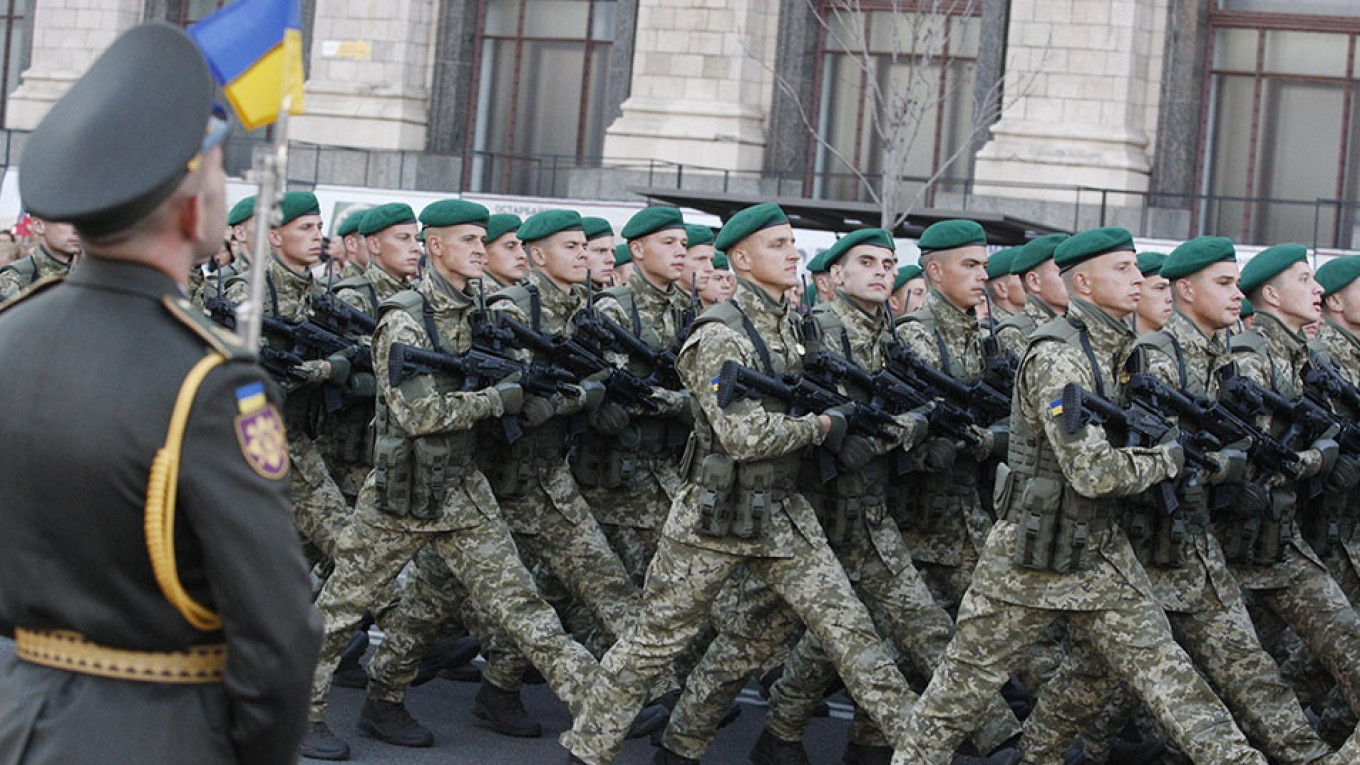The Security Service of Ukraine (SBU) has accused Russia, as well as the unrecognized Donetsk and Luhansk People’s Republics, of attempting to recruit and coerce the wives of Ukrainian soldiers.
Ukraine’s accusations come on the back of deteriorating relations between Kiev and Moscow after Russia's annexation of Crimea in 2014 and support for pro-Russian rebels in eastern Ukraine.
The SBU on Wednesday accused Russia’s Federal Security Service (FSB) and the interior ministries of the two unrecognized republics in eastern Ukraine of attempting to recruit the women during their visits to relatives living in Russia and the breakaway territories.
“The women were subjected to psychological pressure, threatened with an entry and exit ban, jail time and the harassment of their family members. As a result, they provided written consent to cooperate,” the Ukrainian security services said in an online statement.
In exchange for their well-being and that of their relatives, the woman were reportedly asked to disclose the mobile numbers of their husbands, as well as various sensitive military information.
The website of the SBU also published a video featuring three women who were reportedly recruited. The video, in which the women’s faces are blurred, is accompanied by a voiceover that tells the story of their alleged recruitment. One of the women says that the FSB approached her in St. Petersburg during her visit to see family there.
In the past, Russia and Ukraine have accused each other of recruiting each others' nationals for espionage activities.
In October 2017, the SBU accused Russia of attempting to recruit a Ukrainian National Guard employee who was visiting her sister in Moscow. The same year, the FSB claimed that Ukraine set up “recruitment points” around the Crimean peninsula aimed at citizens crossing into Ukraine.
A Message from The Moscow Times:
Dear readers,
We are facing unprecedented challenges. Russia's Prosecutor General's Office has designated The Moscow Times as an "undesirable" organization, criminalizing our work and putting our staff at risk of prosecution. This follows our earlier unjust labeling as a "foreign agent."
These actions are direct attempts to silence independent journalism in Russia. The authorities claim our work "discredits the decisions of the Russian leadership." We see things differently: we strive to provide accurate, unbiased reporting on Russia.
We, the journalists of The Moscow Times, refuse to be silenced. But to continue our work, we need your help.
Your support, no matter how small, makes a world of difference. If you can, please support us monthly starting from just $2. It's quick to set up, and every contribution makes a significant impact.
By supporting The Moscow Times, you're defending open, independent journalism in the face of repression. Thank you for standing with us.
Remind me later.






